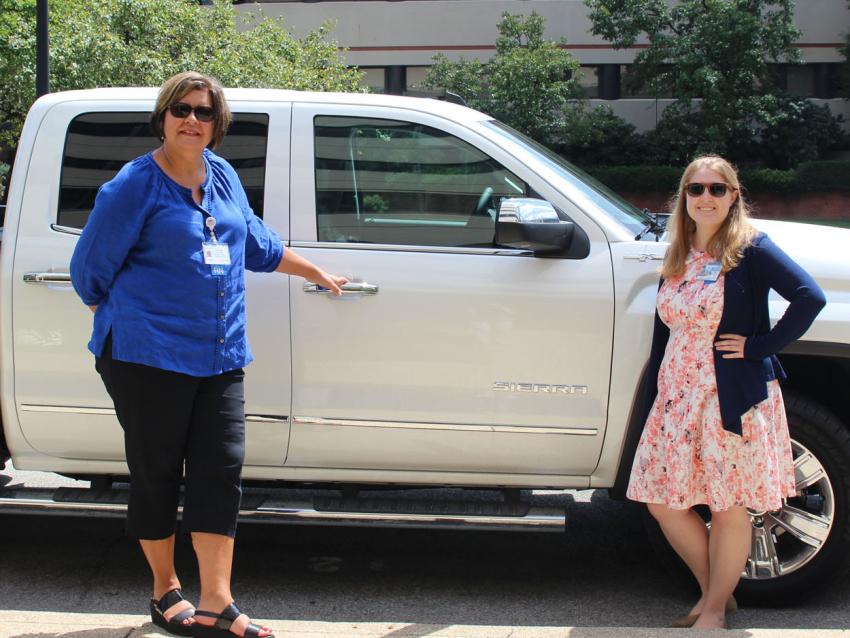
UK College of Nursing Office of Continuing Education Prepares Public Health Nurses to Plan for Safety of Tourists During Total Eclipse
Public health nurse refresher course knowledge was used in planning for the safety and health of Kentucky residents and the high influx of tourists in the state during the recent total eclipse on August 21, 2017. Several first-aid stations staffed with local health department nurses were set up in the Hopkinsville area.
This spring, the University of Kentucky, College of Nursing Continuing Education Office team (UKCONCE) collaborated with the Kentucky Department for Public Health (KDPH) to provide workshops across Kentucky to offer a skills refresher course to prepare public health nurses to provide skilled care for people in a medical need shelter (MNS). The purpose of a MNS is to provide adequate, short term and supportive medical care during a natural or technological disaster for people who need skilled care while displaced from their homes. Because they need clinical supportive care, they cannot be sheltered within a ‘general population shelter’. Public health nurses reviewed nursing skills that are not practiced on a routine basis in their roles within local health department.
Julianne Ossege, PhD, FNP-BC, FNAP, associate professor at the college, assisted by the KDPH, Lynn P. Roser, PhD, RN, CIC and the preparedness team traveled to seven different sites that included Lexington, Louisville, Pikeville, London, Burlington, Bowling Green and Paducah. The UKCONCE team provided this course to more than 250 public health nurses across the state. Each course included five hours of didactic lecture as well as two and one-half hours of laboratory skills practice. In addition, the UKCONCE team assisted KDPH in the development of an extensive training manual for this course that can easily be packed in nursing equipment or ‘to-go’ bags in the face of an emergency or disaster.
In June, the Daviess County Emergency Management Office, the local health department nursing staff, the Daviess County Emergency Management Office, the American Red Cross, the National Voluntary Organizations Active in Disaster (VOAD) and the Medical Reserve Corps drilled and practiced setting up and staffing a MNS. This exercise included nursing staff being able to respond to patient volunteers in various clinical scenarios.
For the past several years, local health department nurses across the state have requested a refresher course reviewing skills that are not routinely practiced to enhance their capability in responding to disasters and staffing MNSs. This course has been invaluable to meeting this need and plans for repeating it in future years are already underway.
